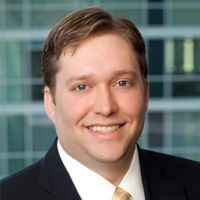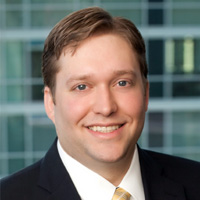Medical Professionals: It’s Not Too Late to Save on Your Taxes
If your income rebounded in 2021, consider these four investment and tax-saving moves now. While most of these strategies apply to 2022 and beyond, one could even reduce your tax bill for 2021.


Profit and prosper with the best of Kiplinger's advice on investing, taxes, retirement, personal finance and much more. Delivered daily. Enter your email in the box and click Sign Me Up.
You are now subscribed
Your newsletter sign-up was successful
Want to add more newsletters?

Delivered daily
Kiplinger Today
Profit and prosper with the best of Kiplinger's advice on investing, taxes, retirement, personal finance and much more delivered daily. Smart money moves start here.

Sent five days a week
Kiplinger A Step Ahead
Get practical help to make better financial decisions in your everyday life, from spending to savings on top deals.

Delivered daily
Kiplinger Closing Bell
Get today's biggest financial and investing headlines delivered to your inbox every day the U.S. stock market is open.

Sent twice a week
Kiplinger Adviser Intel
Financial pros across the country share best practices and fresh tactics to preserve and grow your wealth.

Delivered weekly
Kiplinger Tax Tips
Trim your federal and state tax bills with practical tax-planning and tax-cutting strategies.

Sent twice a week
Kiplinger Retirement Tips
Your twice-a-week guide to planning and enjoying a financially secure and richly rewarding retirement

Sent bimonthly.
Kiplinger Adviser Angle
Insights for advisers, wealth managers and other financial professionals.

Sent twice a week
Kiplinger Investing Weekly
Your twice-a-week roundup of promising stocks, funds, companies and industries you should consider, ones you should avoid, and why.

Sent weekly for six weeks
Kiplinger Invest for Retirement
Your step-by-step six-part series on how to invest for retirement, from devising a successful strategy to exactly which investments to choose.
After experiencing financial hardships in 2020 caused by COVID-19, 2021 was a banner year for many medical professionals. I’ve spoken with several dentists who saw their income grow 20% or more last year, rebounding nicely after enduring temporary office closings and patients canceling or delaying their appointments due to the pandemic.
For these professionals, this situation presents a unique opportunity: how to best invest this windfall and still minimize their 2021 tax bill. And because doctors and dentists – as business owners – can wait until Sept. 15 if they extend their tax returns to file their 2021 business tax returns, there is plenty of time to make the best use of any extra income while still cutting taxes.
Here are four recommendations on steps to take now:
From just $107.88 $24.99 for Kiplinger Personal Finance
Become a smarter, better informed investor. Subscribe from just $107.88 $24.99, plus get up to 4 Special Issues

Sign up for Kiplinger’s Free Newsletters
Profit and prosper with the best of expert advice on investing, taxes, retirement, personal finance and more - straight to your e-mail.
Profit and prosper with the best of expert advice - straight to your e-mail.
Establish a Cash Balance Pension Plan for 2021
Many medical professionals don’t know they have until they file their business return, including extensions, to open and fund a cash balance plan for the 2021 tax year. For example, in 2022’s first quarter, I opened a cash balance pension plan for a client who was able to save an additional $200,000. This decision will save them a substantial amount of money on their 2021 tax return.
Like a traditional pension, a cash balance plan provides business owners with the option of a lifetime annuity. However, unlike pensions, cash balance plans create an individual account for an owner. These plans are an attractive option, allowing medical professionals to potentially save a substantial amount for retirement annually in a tax-deferred retirement savings account.
Once the owner reaches retirement, they have the option of taking these savings in an annuity spread out over several years or as a lump sum. For those who saw business rebound in 2021, it’s a great tool to catch up on retirement savings while paying less in taxes.
Upgrade Your Retirement Plan for 2022
Many medical professionals use the same retirement plan strategy year after year without much thought, but now is a great time to consider changing the plan’s design to allow more savings. For example, if you only have traditional individual retirement accounts (IRAs), consider putting a 401(k) plan in place.
With an IRA, doctors and dentists (and anyone else) can save $7,000 into a traditional IRA if 50 or older. While there are other differences and considerations, a 401(k) retirement plan offers higher contribution limits for participants of up to $67,500, including profit sharing and potential catch-up contributions for 2022. While this won’t save you on your 2021 tax bill, you can utilize the excess cashflow earned during 2021. There are many different retirement plan designs, so speak with your advisory team about all the options.
Make the Most of Your Equipment Expenses
Through the end of 2022, federal tax law allows medical professionals to depreciate 100% of their spending on new equipment, which reduces taxable income. Starting in 2023, the bonus depreciation drops to 80% with an additional 20% drop annually until you can’t take any bonus depreciation in 2028.
If you plan to buy new equipment in the next few years, consider accelerating plans by purchasing it this year to take advantage of the 100% bonus deprecation. Of course, don’t make any unnecessary investments – if it isn’t something you planned to purchase already, don’t do it.
Fund Future Charitable Contributions by Setting Up a Donor Advised Fund
Many medical professionals contribute thousands of dollars annually to their favorite nonprofit organizations. For those who plan to continue making donations for several years – and desire to get a bigger tax break in one tax year – I recommend setting up a donor-advised fund (DAF).
A DAF allows anyone to contribute and receive a charitable deduction in one year, but to spread out the distribution to one or more charities over future years. By doing so, a person will receive a tax deduction at the time of the gift while also making a generous donation.
For example, a medical professional who usually gives $20,000 annually could fund three years of charitable giving by setting up a DAF and contributing $60,000 into the DAF and take the tax deduction in the current year. While the deduction helps offset the high income – thereby lowering taxes – the money can be dispersed over time.
This strategy works particularly well in the year a medical professional sells their practice or has another large one-time tax event. After they retire, their taxable income and itemized deductions are significantly lower so they often use the generous federal income tax standard deduction instead.
2021 was an unusual year for many medical professionals who own their own practices. Taking one of these four steps can save thousands of dollars in taxes while contributing a substantial amount to retirement accounts for future financial independence.
Profit and prosper with the best of Kiplinger's advice on investing, taxes, retirement, personal finance and much more. Delivered daily. Enter your email in the box and click Sign Me Up.

Jason Cross is a wealth adviser at McGill Advisors, a division of CI Brightworth. He works with high-net-worth families in investment management and estate planning and helps business owners develop financial plans to sell their businesses. Jason is a Certified Financial Planner™, Certified Trust and Financial Advisor and an active member of the Georgia Bar Association.
-
 How Much It Costs to Host a Super Bowl Party in 2026
How Much It Costs to Host a Super Bowl Party in 2026Hosting a Super Bowl party in 2026 could cost you. Here's a breakdown of food, drink and entertainment costs — plus ways to save.
-
 3 Reasons to Use a 5-Year CD As You Approach Retirement
3 Reasons to Use a 5-Year CD As You Approach RetirementA five-year CD can help you reach other milestones as you approach retirement.
-
 Your Adult Kids Are Doing Fine. Is It Time To Spend Some of Their Inheritance?
Your Adult Kids Are Doing Fine. Is It Time To Spend Some of Their Inheritance?If your kids are successful, do they need an inheritance? Ask yourself these four questions before passing down another dollar.
-
 The 4 Estate Planning Documents Every High-Net-Worth Family Needs (Not Just a Will)
The 4 Estate Planning Documents Every High-Net-Worth Family Needs (Not Just a Will)The key to successful estate planning for HNW families isn't just drafting these four documents, but ensuring they're current and immediately accessible.
-
 Love and Legacy: What Couples Rarely Talk About (But Should)
Love and Legacy: What Couples Rarely Talk About (But Should)Couples who talk openly about finances, including estate planning, are more likely to head into retirement joyfully. How can you get the conversation going?
-
 How to Get the Fair Value for Your Shares When You Are in the Minority Vote on a Sale of Substantially All Corporate Assets
How to Get the Fair Value for Your Shares When You Are in the Minority Vote on a Sale of Substantially All Corporate AssetsWhen a sale of substantially all corporate assets is approved by majority vote, shareholders on the losing side of the vote should understand their rights.
-
 How to Add a Pet Trust to Your Estate Plan: Don't Leave Your Best Friend to Chance
How to Add a Pet Trust to Your Estate Plan: Don't Leave Your Best Friend to ChanceAdding a pet trust to your estate plan can ensure your pets are properly looked after when you're no longer able to care for them. This is how to go about it.
-
 Want to Avoid Leaving Chaos in Your Wake? Don't Leave Behind an Outdated Estate Plan
Want to Avoid Leaving Chaos in Your Wake? Don't Leave Behind an Outdated Estate PlanAn outdated or incomplete estate plan could cause confusion for those handling your affairs at a difficult time. This guide highlights what to update and when.
-
 I'm a Financial Adviser: This Is Why I Became an Advocate for Fee-Only Financial Advice
I'm a Financial Adviser: This Is Why I Became an Advocate for Fee-Only Financial AdviceCan financial advisers who earn commissions on product sales give clients the best advice? For one professional, changing track was the clear choice.
-
 I Met With 100-Plus Advisers to Develop This Road Map for Adopting AI
I Met With 100-Plus Advisers to Develop This Road Map for Adopting AIFor financial advisers eager to embrace AI but unsure where to start, this road map will help you integrate the right tools and safeguards into your work.
-
 The Referral Revolution: How to Grow Your Business With Trust
The Referral Revolution: How to Grow Your Business With TrustYou can attract ideal clients by focusing on value and leveraging your current relationships to create a referral-based practice.